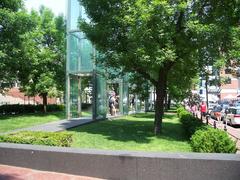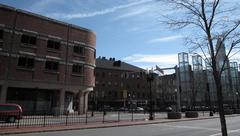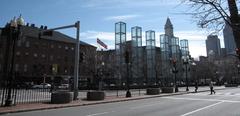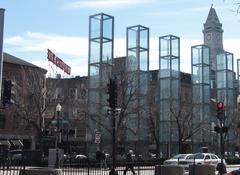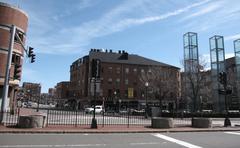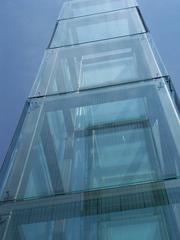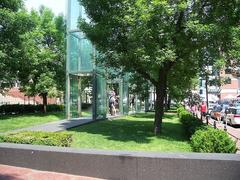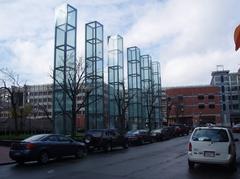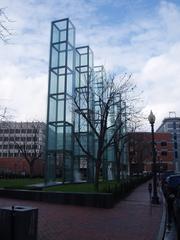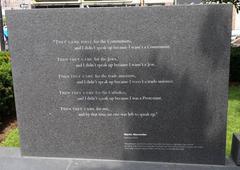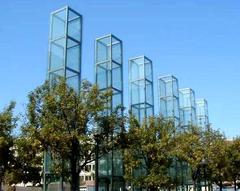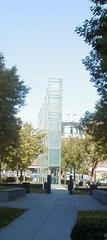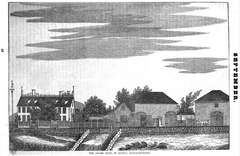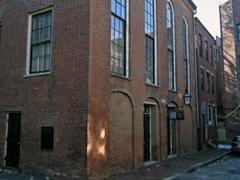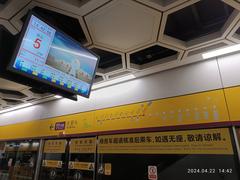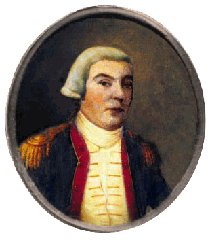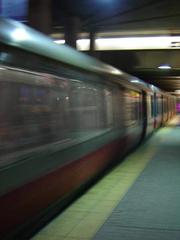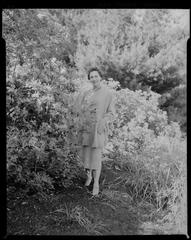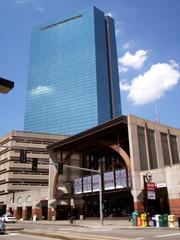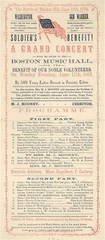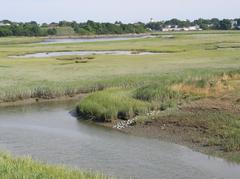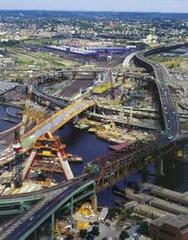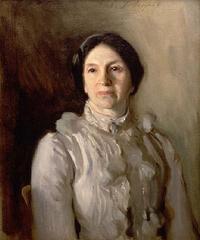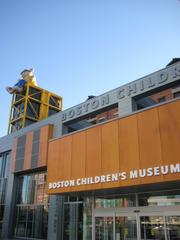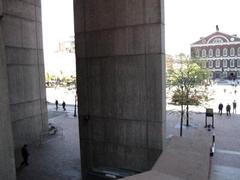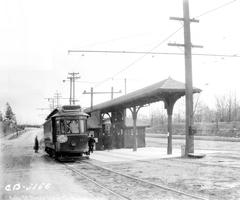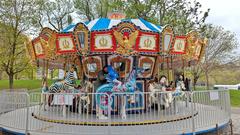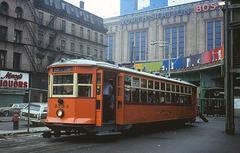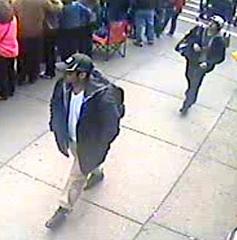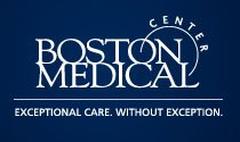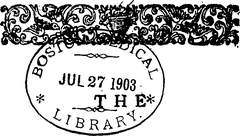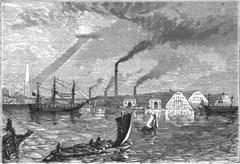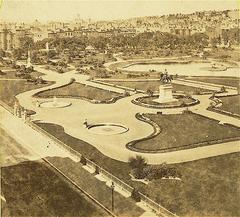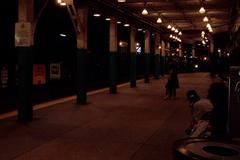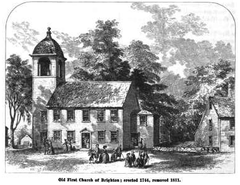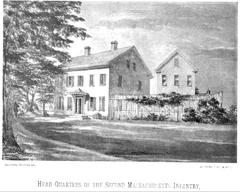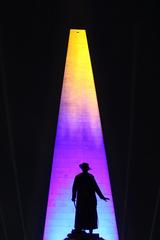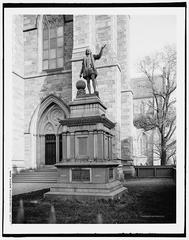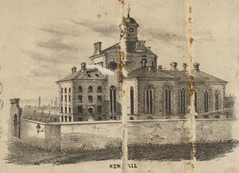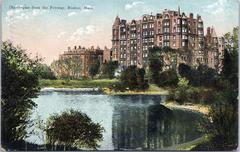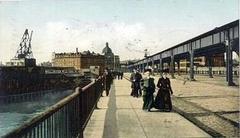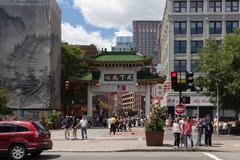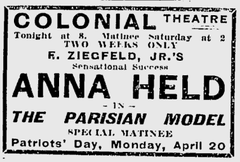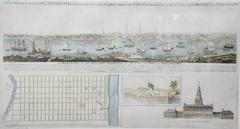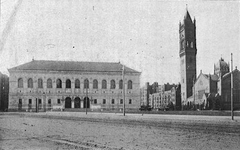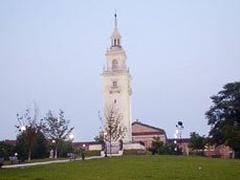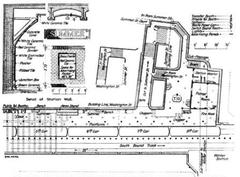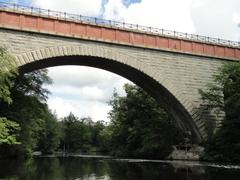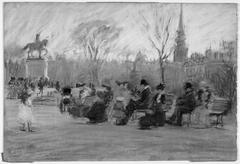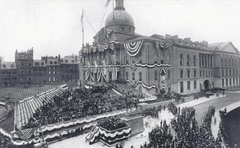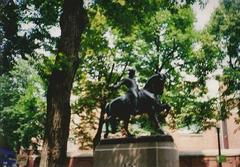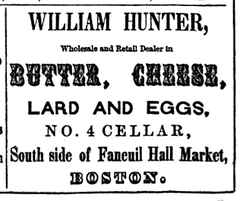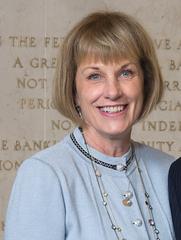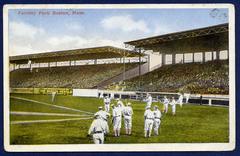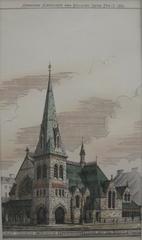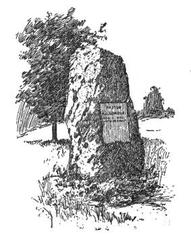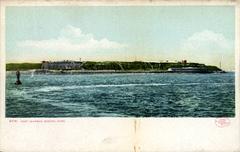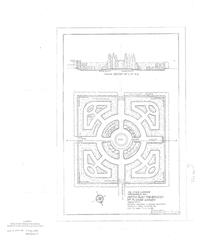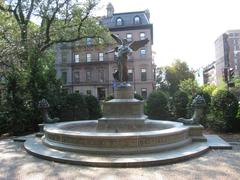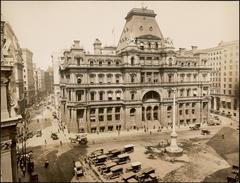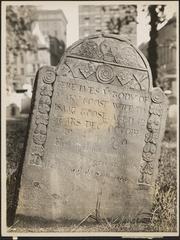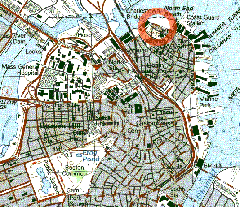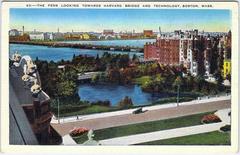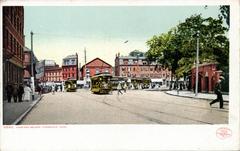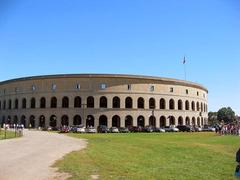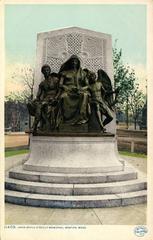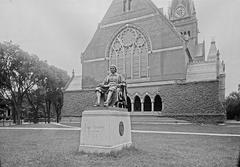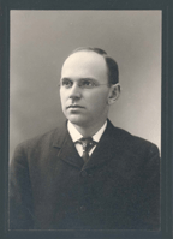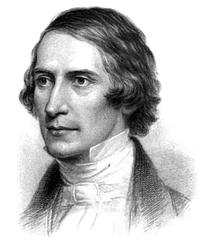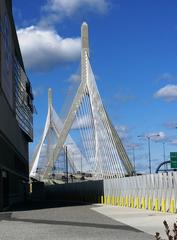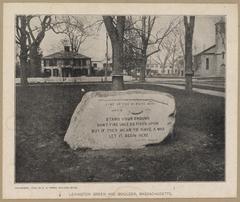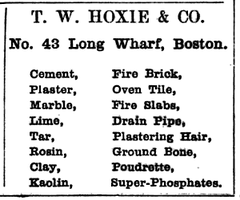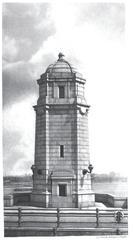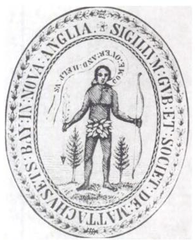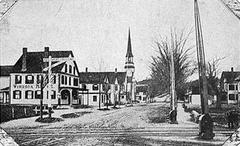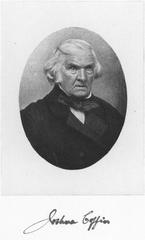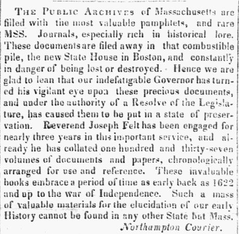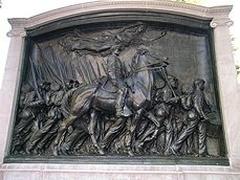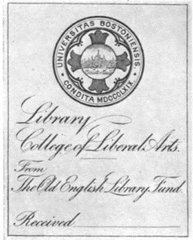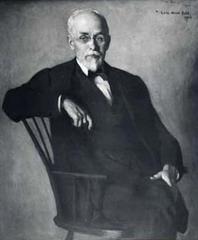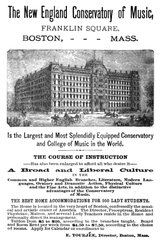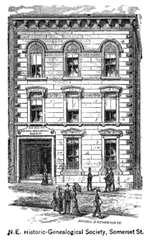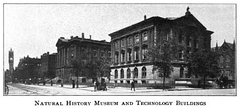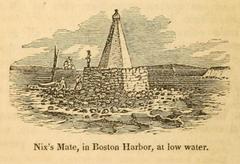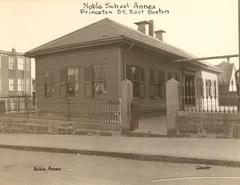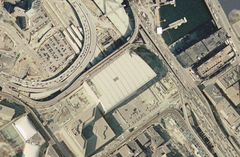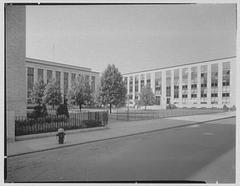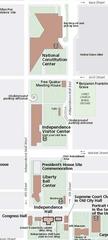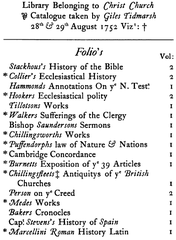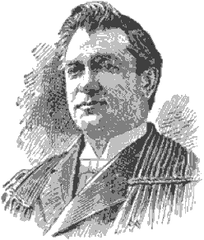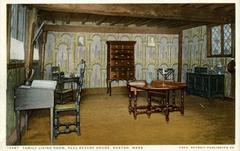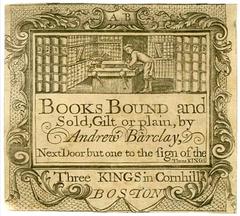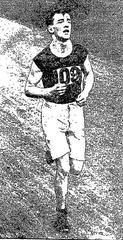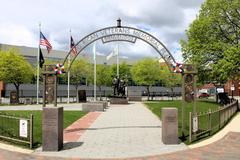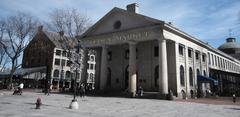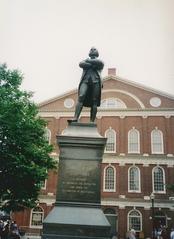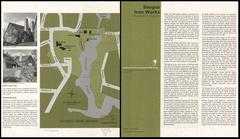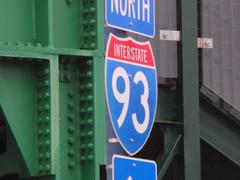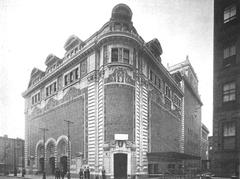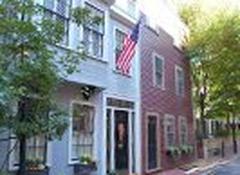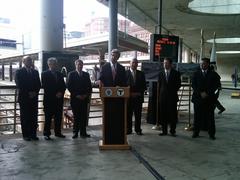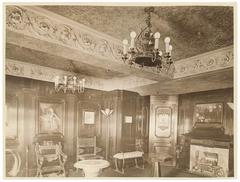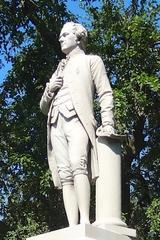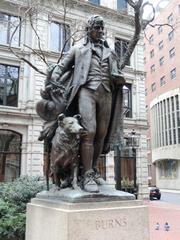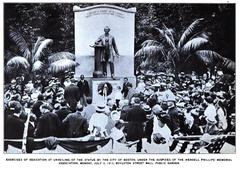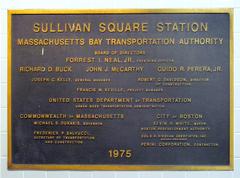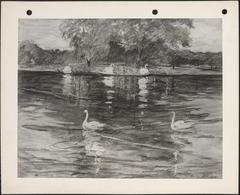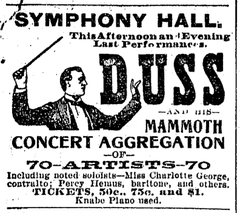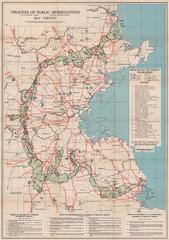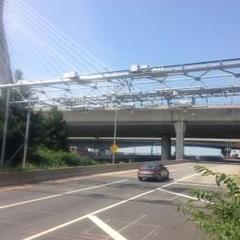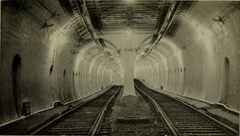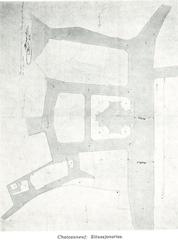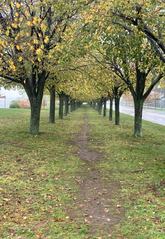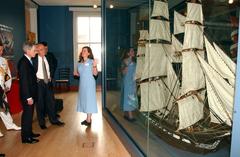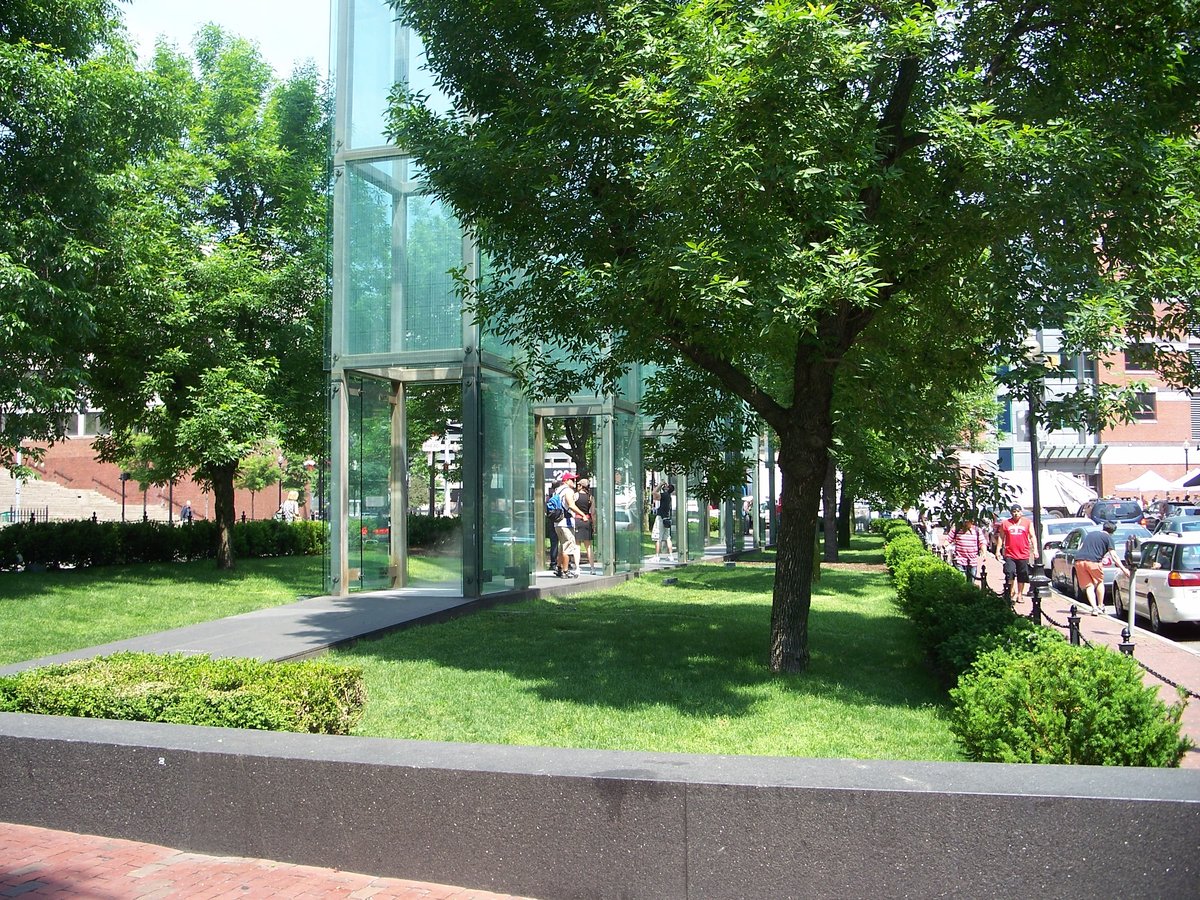
New England Holocaust Memorial: Visiting Hours, Tickets, and Comprehensive Guide to Boston’s Historical Site
Date: 14/06/2025
Introduction
The New England Holocaust Memorial, located in the heart of Boston, Massachusetts, stands as a powerful tribute to the six million Jewish victims of the Holocaust and millions of others who perished due to hatred and intolerance. Conceived by Holocaust survivor Stephan Ross, this memorial is both a place of solemn remembrance and a civic beacon urging vigilance against prejudice and injustice. Its six luminous glass towers—etched with millions of numbers representing those lost—invite visitors to reflect on memory, resilience, and the importance of standing against hatred. Integrated into Boston’s historic Freedom Trail, the memorial is an accessible, educational, and moving destination open to all. This guide provides essential information about the memorial’s history, design, visiting logistics, educational programs, and nearby attractions to help you plan a respectful and meaningful visit. (USCIS, 2024, SAH Archipedia, NEHM Official Website)
Table of Contents
- Origins and Vision: Stephan Ross and the Memorial’s Conception
- Community Mobilization and Support
- Design and Symbolism
- Visiting the Memorial: Hours, Tickets, Accessibility, and Directions
- Guided Tours and Educational Programs
- Dedication, Public Reception, and Legacy
- Special Events
- Travel Tips and Nearby Attractions
- Educational Resources and Initiatives
- Frequently Asked Questions (FAQ)
- Visual and Interactive Resources
- Additional Resources and References
- Final Thoughts and Call to Action
Origins and Vision: Stephan Ross and the Memorial’s Conception
Stephan Ross, a survivor of ten concentration camps including Dachau, immigrated to the United States in 1948. His vision for the memorial was rooted in his personal experience and his desire to honor the memory of those who perished in the Holocaust. The memorial stands as a warning against the dangers of hatred and as a lasting educational resource for future generations. (USCIS, 2024)
Community Mobilization and Support
The realization of the memorial was the result of collaborative efforts by Holocaust survivors, Boston community leaders, philanthropists, and local organizations. Its prominent placement along the Freedom Trail—near Faneuil Hall and the Old North Church—symbolizes the intersection of American values and the ongoing struggle for justice and human rights.
Design and Symbolism
Designed by architect Stanley Saitowitz, the memorial features six 54-foot glass towers. Each tower represents one of the six major Nazi extermination camps—Auschwitz-Birkenau, Treblinka, Sobibor, Majdanek, Chelmno, and Belzec—and the six million Jews who perished. The glass panels are etched with seven-digit numbers, recalling the identification tattoos of concentration camp prisoners. Rising steam beneath the towers evokes the gas chambers, while quotes from survivors and victims line the path, creating a deeply immersive and reflective experience. At night, the illuminated towers resemble a menorah, reinforcing Jewish symbolism and the importance of remembrance. (SAH Archipedia, Saitowitz Studio)
Visiting the Memorial: Hours, Tickets, Accessibility, and Directions
Visiting Hours:
The memorial is open daily from dawn until dusk. As an outdoor public space, it remains accessible year-round.
Tickets and Admission:
Admission is free. No ticket or reservation is required for general visits.
Accessibility:
The memorial is fully wheelchair accessible, with smooth granite walkways and ramps accommodating visitors of all abilities. For those unable to visit in person, a virtual tour is available.
Location and Directions:
48 Congress Street, Boston, MA.
Accessible via MBTA Orange and Green Lines (State Street Station), with parking available in nearby garages and metered street spaces.
Guided Tours and Educational Programs
Guided group tours led by trained docents are available by appointment through the Jewish Community Relations Council (JCRC). Many local tour companies also include the memorial as a key stop on their Boston historical tours, providing context and personal stories that deepen the visitor experience. The memorial’s mobile tour (NEHM Mobile Tour) features survivor interviews, historical context, and interactive content.
Dedication, Public Reception, and Legacy
Dedicated in October 1995, the memorial has become a central site for Holocaust remembrance and education in Boston. Annual events—such as Yom HaShoah (Holocaust Remembrance Day)—draw survivors, descendants, educators, and the public, reinforcing the memorial’s role as both a place of mourning and a symbol of hope. The forthcoming Holocaust Museum Boston, opening in 2026, will further expand the city’s commitment to Holocaust education.
Special Events
Commemorative ceremonies are held at the memorial on International Holocaust Remembrance Day (January 27), Yom HaShoah, and other significant dates. These events often feature survivor speakers, candle-lighting ceremonies, and educational programs. Check the official website for event schedules.
Travel Tips and Nearby Attractions
- Best Time to Visit: Early mornings and evenings offer quieter, more contemplative experiences. Evening visits provide dramatic views of the illuminated towers.
- Getting There: Easily accessible by public transportation (State Street MBTA Station) and within walking distance of Faneuil Hall, Quincy Market, and the North End.
- Nearby Attractions: Freedom Trail, Boston Common, Old North Church, and the New England Aquarium.
- Photography: The memorial is a popular spot for respectful photography. Daytime and nighttime lighting both offer unique perspectives.
Educational Resources and Initiatives
The NEHM is a cornerstone of Holocaust education in New England. In partnership with organizations such as Facing History and Ourselves, the memorial offers extensive educator resources, including lesson plans, survivor testimonies, podcasts, and webinars aligned with state curriculum frameworks.
Personal survivor stories and community storytelling are central to the memorial’s impact. The annual “Six Million Steps” walk and the Izzy Arbeiter Holocaust Essay Contest engage students and community members in remembrance and reflection.
The memorial also provides a virtual tour for remote visitors, featuring 3D images and videos, survivor quotes, and historical context.
The forthcoming Holocaust Museum Boston will offer immersive exhibits, interactive experiences, and further educational programming to deepen public understanding.
Frequently Asked Questions (FAQ)
Q: What are the visiting hours?
A: The memorial is open daily from dawn until dusk.
Q: Is there an admission fee or ticket required?
A: No, admission is free and no ticket is needed.
Q: Are guided tours available?
A: Yes, by appointment through the JCRC or via local tour companies.
Q: Is the memorial accessible for those with disabilities?
A: Yes, it is fully wheelchair accessible.
Q: Where is the memorial located?
A: 48 Congress Street, Boston, MA, along the Freedom Trail.
Q: Are there virtual tours?
A: Yes, the NEHM website offers a virtual tour.
Visual and Interactive Resources
- [Photo: Glass towers of the New England Holocaust Memorial illuminated at night, alt text: “Six illuminated glass towers of the New England Holocaust Memorial in Boston at night”]
- [Photo: Memorial during the day, alt text: “New England Holocaust Memorial glass towers in Boston illuminated during daytime”]
- [Video: Virtual tour overview with survivor testimonies, alt text: “Virtual tour of New England Holocaust Memorial”]
- [Map: Interactive map showing the NEHM location on the Freedom Trail, alt text: “Map of New England Holocaust Memorial and nearby Boston historical sites”]
Additional Resources and References
- USCIS: Stephan Ross and the Memorial’s History
- SAH Archipedia: Memorial Guide and Architecture
- NEHM Official Website: Visitor Information, Events, and Educational Resources
Final Thoughts and Call to Action
The New England Holocaust Memorial is a vital testament to remembrance, education, and the enduring human spirit. Its symbolic design and accessible location make it an essential stop for anyone seeking to honor the victims of the Holocaust and deepen their understanding of history’s lessons. With free admission and extensive educational initiatives—including on-site, mobile, and virtual resources—the memorial invites all visitors to reflect, learn, and commit to combating hatred and intolerance in society. Plan your visit, explore nearby historical sites, and join the effort to bear witness and inspire a more just and compassionate future.
For updated information on visiting hours, events, and resources, consult the official NEHM website. Download the Audiala app for curated guides, mobile tours, and the latest visitor tips, and follow us on social media for ongoing updates.
